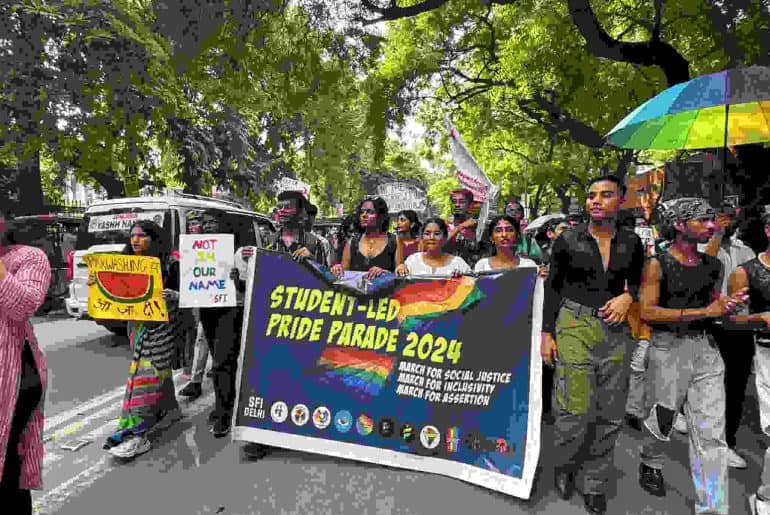Despite receiving 60,000 signatures, SFI-Delhi’s campaign calling for concessional metro passes for students seems to have been ignored by central authorities. When the students took to the streets of Nirman Bhavan, peacefully protesting to showcase their demands, they were allegedly manhandled by the police and detained.
On Tuesday, November 12th, the Students Federation of India (SFI)—Delhi led a demonstration demanding concessional metro passes for students, which the Delhi Police cut short. The Delhi Police detained over 30 students, “manhandled” several others, and stopped them from continuing the demonstration. Moreover, SFI was denied the ability to address what they claimed to be basic demands through a delegation. Sooraj, President of SFI-Delhi stated:
It’s clear how threatened the authorities are by students, as they are even blocking our demand for something as basic as a metro pass.
The Delhi Police, on the other hand, refuted these allegations. A senior police officer told the Times of India that the students were told not to march in the area since it was reserved for VIPs:
We also told them to march in the Jantar Mantar area, but they did not listen.
Anamika, Joint Secretary Candidate at SFI, DUSU remarked,
It is a shame that while the Delhi Metro has been classified as the second-most expensive metro in the world, the government refuses to hear students, who are entitled to the city, just as much as all citizens.
The campaign started in 2022 with the DMRC slotting their demands for the fare fixation committee. The Delhi Transport Minister also met a delegation of SFI-Delhi in 2023 to further address this issue. Even now, despite having 60,000 signatures to their campaign, which eventually culminated in the protest, their demands were ignored.
Avijit, Vice President, JNUSU commented on this issue:
We are always willing to cooperate within reasonable limits. But this does not mean that the government cannot even allow us to send a delegation. Are they telling us that the voices of 60,000+ students mean nothing?
The allegedly “draconian” handling of these peaceful demonstrators is another strategy commonly employed by authoritarian, fascist regimes to stifle dissenting voices and deflect criticism, creating an illusion of a perfect governance system, the students further claimed.
Read Also: Over 30 teachers detained in Delhi during anti-NEP protest
Image Credits: SFI CEC via Instagram
Sakshi Singh


